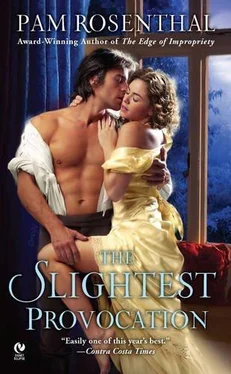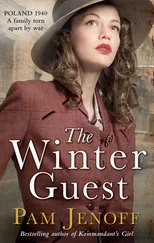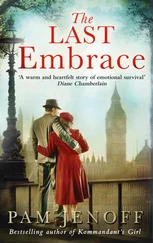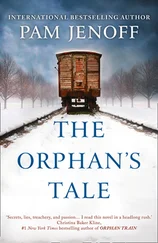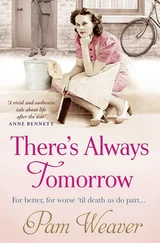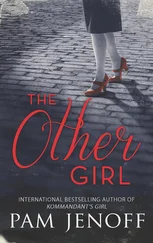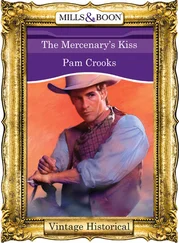“And sillier,” Jessica added.
“Perhaps.”
“You’ve written to Matthew about all of this, I trust.”
Mary shook her head. “Not yet. I shall finish my letter tomorrow. Let’s walk outside for a bit, shall we? The stars are out; I want to smell Papa’s gardens.”
The roses and lilac, violets and lemon verbena shed their fragrance more intensely after dark, the sweet air of the English country night seeming to glimmer with benign spirits. Mary could feel her parents’ presence; it seemed to her that Arthur Grandin had added the warm light of his memory. There were a few more restless shades abroad as well: she shook her head at the one who stuck a sugary yellow tongue out at her. When she was sure that Jessica was looking the other way, she stuck her own tongue back at the little imp-who giggled silently and flickered off toward the forest.
“It will be fun to have you home again, Mary.”
“In some ways, it’s as though I’d never left.”
The sisters kissed good night.

Kit couldn’t decide whether his week in town had crawled or flown by. Time seemed to have lost its shape; he could better account for the past nine years than these few days. Let’s see, he thought, I’ve ridden in the park, purchased a new pocket watch, dined with my sister and her family in Upper Brook Street … The rest, it seemed, was a fog of uncertainty about his career and worry about his sick brother (and what a time for poor old Wat to be struck down too, with the countryside so rife with dissension).
And then there were the distracting reveries he kept drifting into. Sometimes angry, sometimes penitent. Distressingly real and on occasion dizzyingly physical-like the sudden torrent of feeling that had nearly immobilized him the afternoon he’d allowed himself to walk down Curzon Street.
Peering up at the window of what had been his bedchamber… the bedposts, looped with scarlet silk cord… first time they’d tried that … her back arched, breasts lifted against the pull at her wrists-legs splayed, ah yes, her ankles too. What artful knots he’d tied; he’d practiced while she’d been visiting her sister. He’d computed the length of cord he’d need, with diligence and rare thrift as well.
He’d visited the draper’s himself. The shop man was barely able to contain his amusement: evidently Kit wasn’t the only gentleman who’d ever bought a length of drapery cord, though he might have been the youngest and most serious about it.
Worth it, though, worth everything-her eyes so wide, body thrashing about (good to leave a little play in the cords), mouth loosened in such a wobbly, woozy smile afterward. The best times had always been when he’d been able to surprise, to amaze her.
Yes, and dashed painful to hobble home under the assault of that particular memory. He’d never walk down that street again, rankle though it might that there should be places in England that were off-limits to him.
Not that her presence at Beechwood Knolls was keeping him from going down to see Wat. Not at all. His sister-in-law had written that he needn’t bother; silly to travel all that way and then back again when he had imminent business in town. Wat must have told her about his Home Office aspirations; Susanna had been most definite that her husband wouldn’t want Kit to change plans on his account.
You see, Mary? As though any of it would have made a difference to her, given her stiff-necked, Penley-ish view of all the Stansells except the dowager marchioness.
Only one more day of this limbo to get through. He’d be dining with the Home Office secretary tomorrow; his head felt clearer already in anticipation. This morning he’d visit Shumway in the City, see how his money was faring. Tonight he’d stay home, reread some documents, try to sound like he knew what he was talking about, for when he met Lord Sidmouth.
Only the afternoon to dispose of.
Lovely weather. The sun shone through the skylight; his boots quite glistened as he stepped downstairs.
The house’s marble-walled foyer was set with a row of mirrors. Happily, the Old Kit couldn’t be seen in any of them.
On the contrary. Retired army officer done up in excellent linen, good French waistcoat and well-brushed blue coat snug about a torso and shoulders he’d never thought he’d have when he’d been such a stick of a boy. Even his nose didn’t look so bashed up this morning; its blunted, broken shape might possibly pass for Roman (well, that’s what she’d always called it). No point wishing for more height, of course, though he’d doubtless continue to do so for as long as he stood on his legs. He mussed his hair a bit; his valet had made it too pretty.
Nothing in the newspaper about a disturbance in the Midlands.
But there wouldn’t be one yet. Not according to his eldest brother’s last letter anyway.
Kit had been surprised about a year ago when Wat had begun sending him regular and detailed communications. The two of them had never been congenial; Will had been the brother everyone got along with, his death on the march to Corunna a blow even to the Eighth Marquess, and probably hastening the old man’s death.
Perhaps Wat had felt isolated in the country, especially after his first bout of apoplexy. Very likely he regretted not having his own chance for military glory. At home in placid Derbyshire, the Ninth Marquess must have wanted to show the family’s scapegrace-turned-war-hero that he too was doing his part for England.
As-rather surprisingly-it had come to seem he was. Kit had replied to the letters, at first out of a kind of shamed sympathy (poor, dull, stay-at-home Wat), later from guilty curiosity (but should English magistrates be setting spies upon the people of their districts?), most recently with some genuine alarm (well, perhaps they should, if the situation were really so dangerous).
Lord Sidmouth would know about the extent of the danger. Kit would ask him when they dined tomorrow.
“No,” he told the butler at Park Lane, “don’t bother ordering the carriage. I’ve plenty of time to get to the City. Interesting to walk about and see how things have changed. Besides, I can see how hard you’re all working.”
The house being turned upside down-maids beating carpets, workmen regilding the moldings-in preparation for the marchioness’s imminent return from the continent.
“It’s coming splendidly. No, truly, I’m glad to walk.”
South and east on St. James Street. Sunshine bounced off the bow window at White’s Club and rendered it opaque. He wondered who sat there nowadays, in the deep armchairs. Probably the same overbearing ninnies as before, telling the same overwrought jokes and dispensing equally bad advice. Growing gray in those chairs, running to fat or shriveling to leather.
Still, he might drop by. Pay the fees that had piled up in his absence. Have a drink, play a hand or two, hear all the gossip, of clothes and horses, fortunes married or gambled away. He had time to waste this afternoon. Why else had institutions like White’s been invented, except to help you waste your time?
Stumbling on an uneven length of paving, he caught his balance and righted himself. New construction made crossing treacherous; the route he’d chosen had almost been swallowed up in a confusion of building and demolition. The air rang with the cries of workmen, quivered with the anxieties of populations relocated, houses and shops destroyed or soon to be so.
He was approaching Whitehall Palace now, with the Thames nearby. A crowd swarmed at the entrance to the government offices-returning soldiers, most likely, who hadn’t gotten their pay yet. The wind off the river reeked of fish and food, tar and timber, the strong sweat of boatmen, and odors whose provenance was better left unknown. The fellow pulling his oars so evenly would make an excellent boxer; how long, Kit wondered, since he’d seen a pair of good British pugilists demonstrate their sweet science?
Читать дальше
